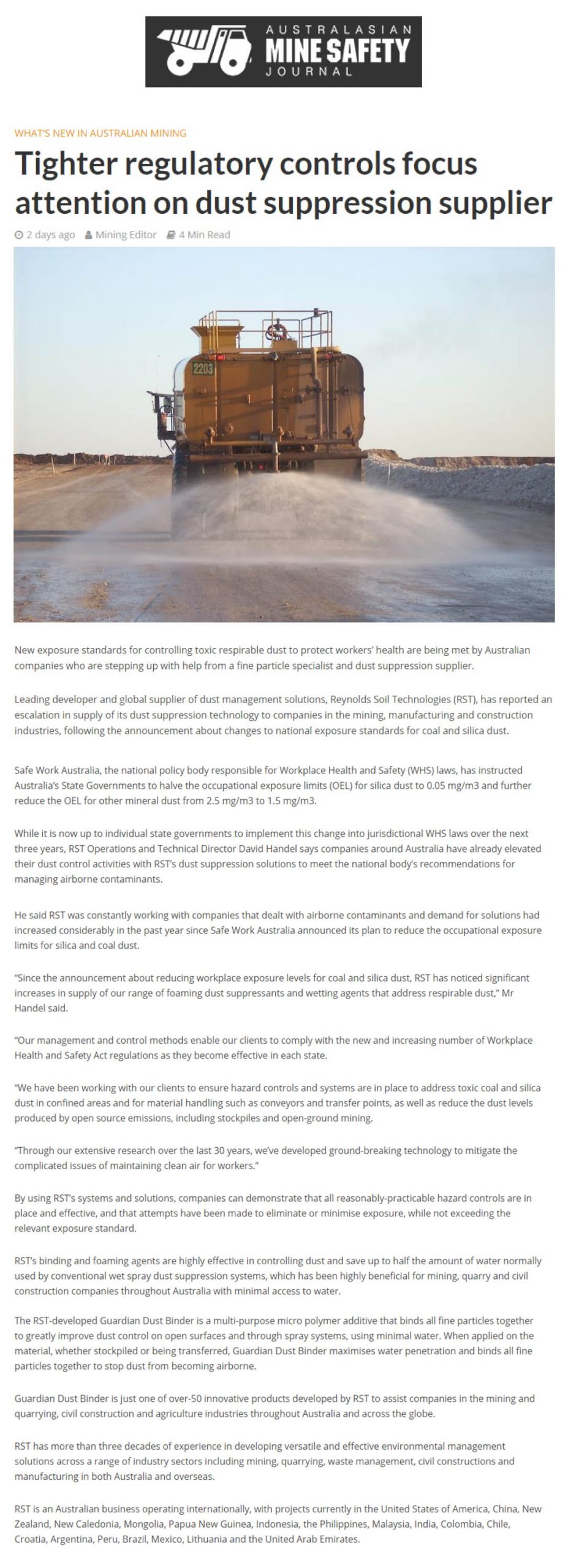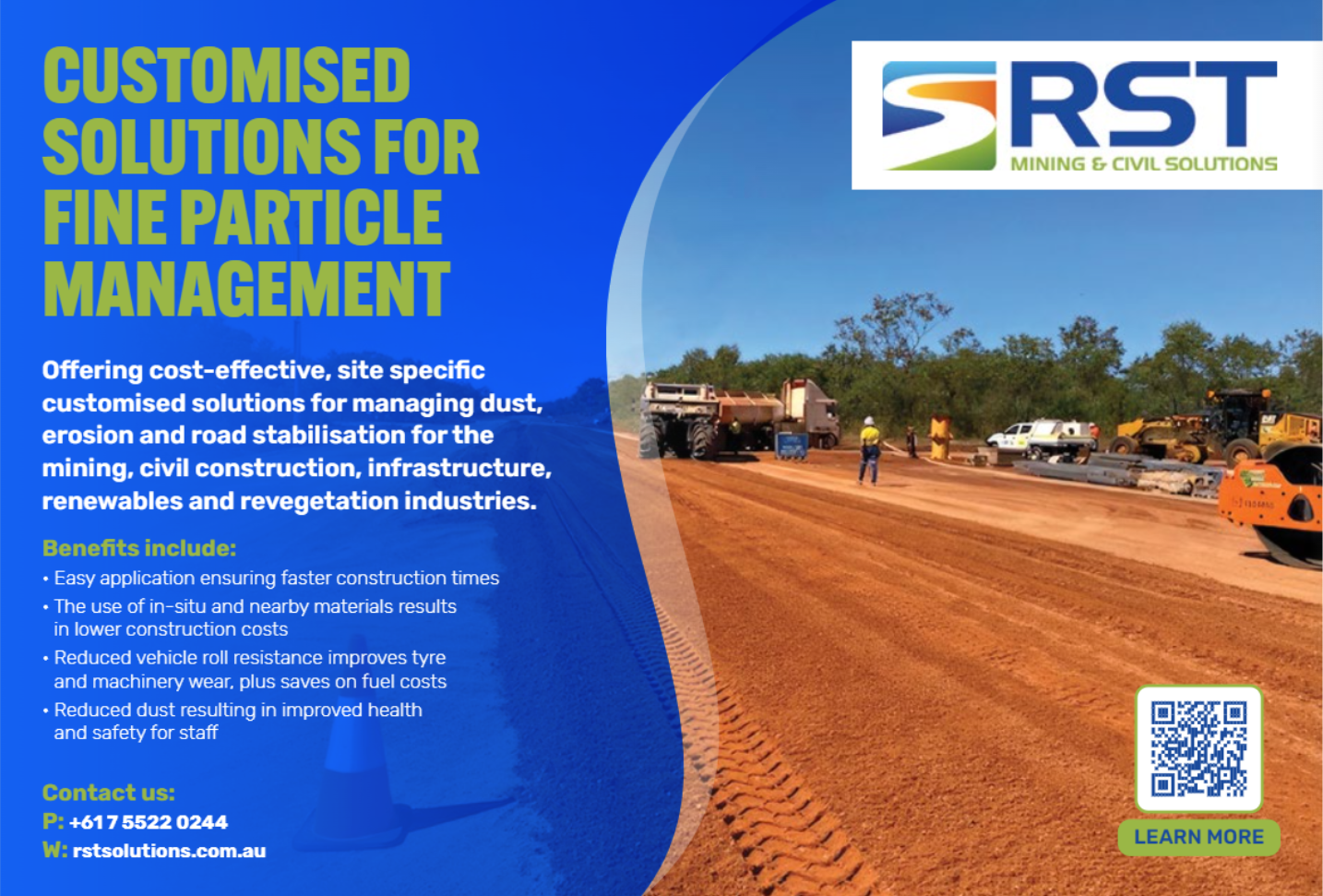
New exposure standards for controlling toxic respirable dust to protect workers’ health are being met by Australian companies who are stepping up with help from a fine particle specialist and dust suppression supplier.
Leading developer and global supplier of dust management solutions, Reynolds Soil Technologies (RST Solutions), has reported an escalation in supply of its dust suppression technology to companies in the mining, manufacturing and construction industries, following the announcement about changes to national exposure standards for coal and silica dust.
Safe Work Australia, the national policy body responsible for Workplace Health and Safety (WHS) laws, has instructed Australia’s State Governments to halve the occupational exposure limits (OEL) for silica dust to 0.05 mg/m3 and further reduce the OEL for other mineral dust from 2.5 mg/m3 to 1.5 mg/m3.
While it is now up to individual state governments to implement this change into jurisdictional WHS laws over the next three years, RST Solutions Operations and Technical Director David Handel says companies around Australia have already elevated their dust control activities with RST Solutions’ dust suppression solutions to meet the national body’s recommendations for managing airborne contaminants.
He said RST Solutions was working with companies that dealt with airborne contaminants and demand for solutions had increased considerably in the past year since Safe Work Australia announced its plan to reduce the occupational exposure limits for silica and coal dust.
“Since the announcement about reducing workplace exposure levels for coal and silica dust, RST Solutions has noticed significant increases in supply of our range of foaming dust suppressants and wetting agents that address respirable dust,” Mr Handel said.
“Our management and control methods enable our clients to comply with the new and increasing number of Workplace Health and Safety Act regulations as they become effective in each state.
“We have been working with our clients to ensure hazard controls and systems are in place to address toxic coal and silica dust in confined areas and for material handling such as conveyors and transfer points, as well as reduce the dust levels produced by open source emissions, including stockpiles and open-ground mining.
“Through our extensive research over the last 30 years, we’ve developed ground-breaking technology to mitigate the complicated issues of maintaining clean air for workers.”
By using RST Solutions’ systems and solutions, companies can demonstrate that all reasonably-practicable hazard controls are in place and effective, and that attempts have been made to eliminate or minimise exposure, while not exceeding the relevant exposure standard.
RST Solutions’ binding and foaming agents are highly effective in controlling dust and save up to half the amount of water normally used by conventional wet spray dust suppression systems, which has been highly beneficial for mining, quarry and civil construction companies throughout Australia with minimal access to water.
The RST Solutions developed Guardian Dust Binder is a multi-purpose micro polymer additive that binds all fine particles together to greatly improve dust control on open surfaces and through spray systems, using minimal water. When applied on the material, whether stockpiled or being transferred, Guardian Dust Binder maximises water penetration and binds all fine particles together to stop dust from becoming airborne.
Guardian Dust Binder is just one of many innovative products developed by RST Solutions to assist companies in the mining and quarrying, civil construction and agriculture industries throughout Australia and across the globe.
RST Solutions has more than three decades of experience in developing versatile and effective environmental management solutions across a range of industry sectors including mining, quarrying, waste management, civil constructions and manufacturing in both Australia and overseas.
RST Solutions is an Australian business operating internationally, with projects currently in the United States of America, China, New Zealand, New Caledonia, Mongolia, Papua New Guinea, Indonesia, the Philippines, Malaysia, India, Colombia, Chile, Croatia, Argentina, Peru, Brazil, Mexico, Lithuania and the United Arab Emirates.



